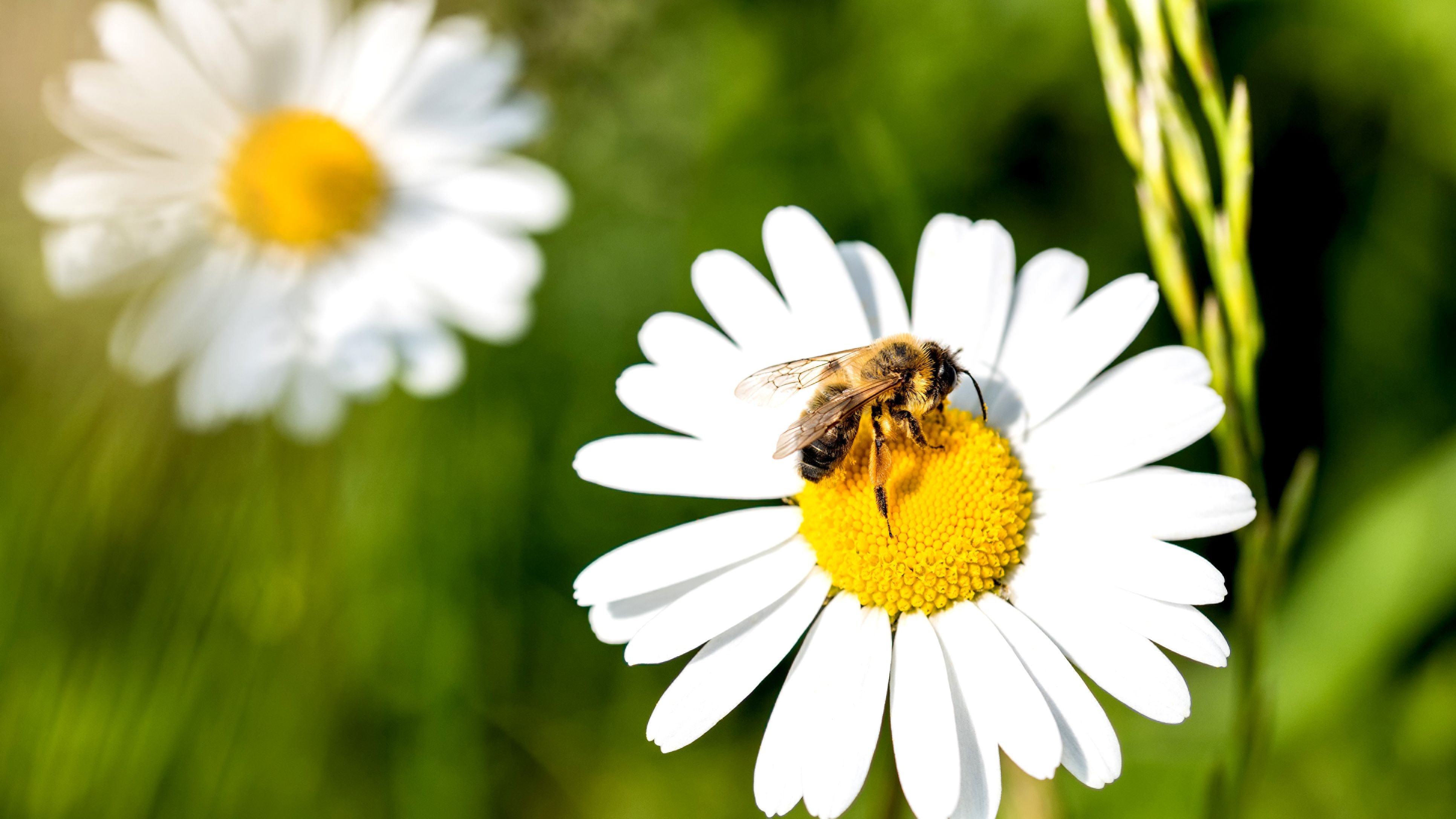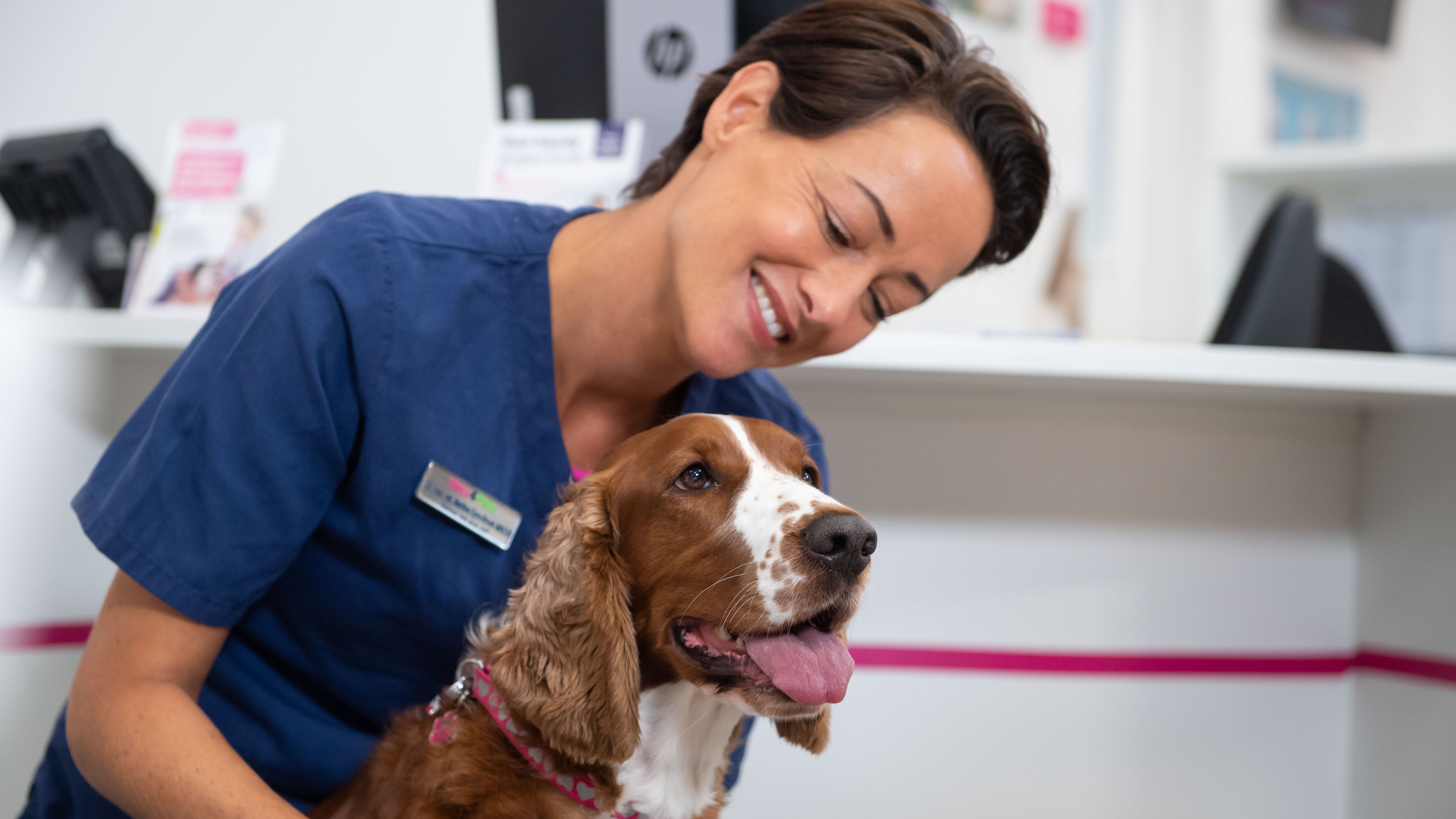
Treatment and symptoms for bee and wasp stings in dogs
Find out what to do if your dog has been stung by a bee or a wasp
From early spring to late autumn, your dog could be at risk of being stung. Often, stings occur on the paws, when a dog accidentally treads on an insect. Some dogs enjoy chasing flying insects and if they catch a bee or wasp, they can get stung on the face or in the mouth.
Single stings are usually painful but not life-threatening unless they cause swelling in the mouth or throat. However, there can be serious consequences if your dog or puppy is stung multiple times.
Symptoms of a bee or wasp sting in dogs
Depending on where they are stung, your dog may:
- Limp
- Chew or lick at their paw
- Paw frantically at their face
- Smack their lips
- Drool
- Retch
- Whine
- Pant
- React loudly
More serious symptoms associated with multiple stings or allergic reactions include drowsiness, disorientation or collapse, pale gums, seizures, vomiting, wheezing or difficulty breathing, and swelling in or around the mouth.
The venom contains a cocktail of toxins that can cause tissue damage and immune-mediated reactions. Rarely, anaphylactic shock can develop within 10 minutes to several hours of being stung.
What to do if your dog is stung
If you can see the stinger, it means that the insect was a bee. Bees leave their stingers behind, whereas wasps and hornets do not. Bee stings continue to inject venom for a while after they enter the skin, so remove them as soon as possible.
Look for a yellowish blob sticking out of the skin and use a credit card to scrape the stinger out, by hooking the edge of the card under the venom sac. Don’t try to remove it using your fingers or tweezers as these can squeeze the venom sac and inject more venom.
To reduce pain and swelling, apply an ice pack, a bag of frozen peas or even a cloth soaked in cold water. Bathing the area using a solution of sodium bicarbonate to neutralise the acid in a bee sting, or vinegar to combat alkaline wasp venom, might help.
If the sting is on or around the face or mouth, if there is more than one sting or if your dog is showing signs of an allergic or serious reaction, contact your vet immediately for advice. Only give any other home treatment, for instance, antihistamines, if your vet asks you to.
If you think your dog has eaten a bee or wasp, let your vet team know. You may be asked to bring your dog in to be checked, but if not, you’ll need to watch them closely for the next 10-12 hours. If a dog is stung in the mouth by a bee or wasp and it swells up, it can block the airway, which can be life threatening.
Treatment for bee or wasp stings in dogs
If your vet advises you to bring your dog in to be checked, they will remove any further stings and they can administer pain relief and anti-inflammatories by injection or in a cream. They may prescribe dog-safe antihistamines. Never treat at home with medications without first talking to your vet.
In dogs experiencing anaphylaxis, emergency treatment is required, which may include giving epinephrine (adrenaline) or steroids, plus oxygen and intravenous fluids. Organ damage and further anaphylactic reactions are possible following an initial severe reaction and it may be necessary to hospitalise an affected dog for several days.
FAQs
Use a credit card to hook under the yellowish venom sac and scrape the sting out of the skin.
If a dog is having an allergic reaction to being stung, symptoms include: swelling around the mouth, drowsiness, disorientation or collapse, pale gums, vomiting, difficulty breathing and seizures. If you are concerned your dog may be reacting to a sting, contact your vet immediately, as this is an emergency.
You can reduce pain and swelling by applying an ice pack or bag of frozen peas to the site for 10 minutes.
Health Plans to keep your dog healthy
At Vets4Pets we offer a range of Health Plans that make essential routine treatments more affordable. You'll save money on things like annual vaccinations, flea and worm treatment and routine health check-ups.

Dog Advice
Read more of our expert dog advice to keep your dog happy and healthy.
